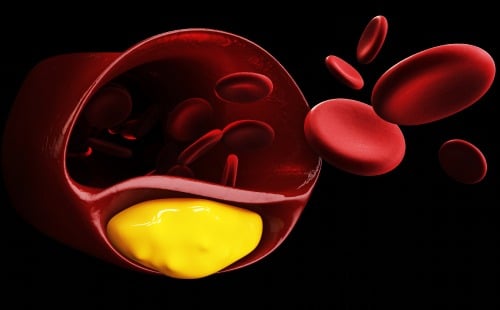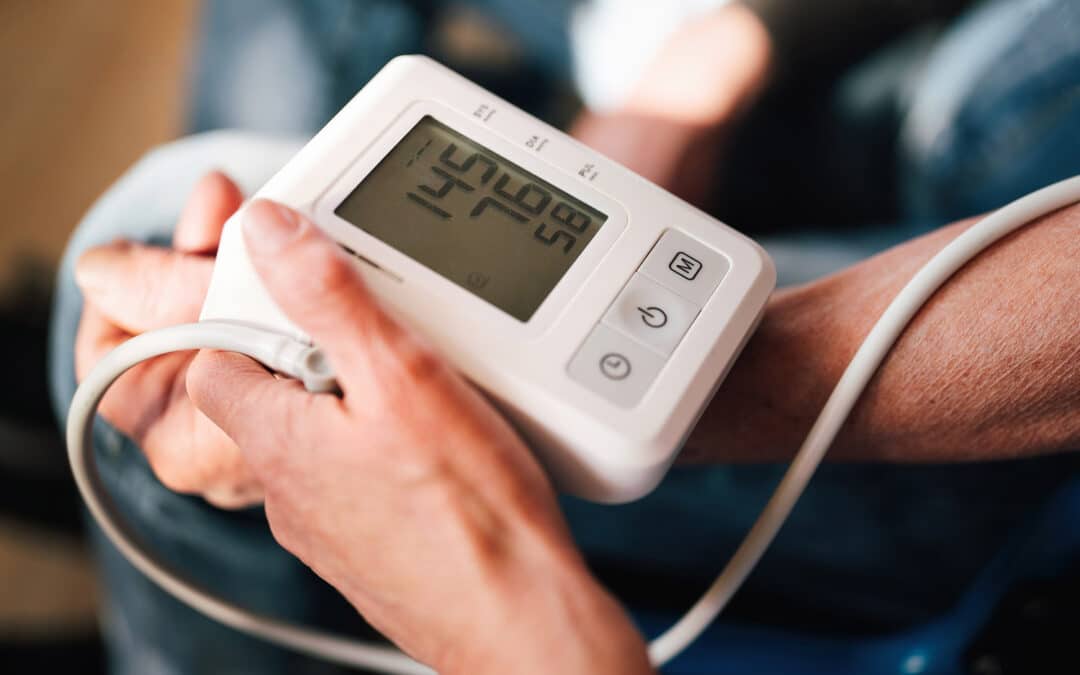Heart health is an extremely important topic that can make many people unsure or uncomfortable to discuss. But in order to continue a healthy lifestyle and live a long life, there are certain steps that need to be taken to make sure you are placing heart health above other indulgences such as eating fatty foods, smoking, and drinking too much alcohol. Avoiding these things can be a great way to start, but it takes more than just these few things to achieve overall good health. Has your doctor recently warned you about your heart’s health? Have you been searching for how to avoid plaque buildup in arteries? We have come up with an easy to follow guide and tips and tricks you can follow to boost your personal health and prevent plaque from building up within your arteries.
What exactly is plaque?
The buildup of plaque occurs when cholesterol gets lodged in artery walls. White blood cells go on the defensive and attempts to contain the cholesterol, but doing so can cause inflammation and the buildup of soft plaque, which can also become a hazard to your health.
High blood pressure can cause this soft plaque to be released, form a clot and a result, cause a heart attack. While doctors may be able to prescribe medication to help, you can also take initiative and change things during your day-to-day activities to improve your overall heart health and avoid plaque buildup.
Daily diet
Start with your diet and see what could use improvement. In order to diminish the risk of cardiovascular disease, heart attack, and stroke, the bulk of your diet should consist of whole unprocessed foods that are rich in essential vitamins and minerals. Avoid overly spicy foods to help reduce painful symptoms such as acid reflux and heartburn. The one change most people have a hard time making when it comes to their diet is cutting down on salt intake. However, there are now low sodium salt options available in store, and you can also use traditional herbs like basil, thyme, rosemary, and garlic to season your food and bring it to life without excess amounts of salt.
Here is a simple breakdown of basic foods you should aim to fit into your daily diet:
Vegetables – Select leafy, dark green vegetables to get the most fiber out of them. Consider items like broccoli, spinach, zucchini, and asparagus. Outside of the green variety of vegetables, bell peppers, carrots, tomatoes, garlic, onions, and sweet potatoes are other fantastic options to consider buying when at your local grocer.
Fruits – Fruits can contain a ton of sugar and should be enjoyed moderately. However, there are numerous options when looking for fruit that benefits the body. Some fruits to purchase include citrus (oranges, grapefruit, blood orange, etc.), bananas, apples, berries, peaches, and other fruits that are rich in color and antioxidants. A bonus fruit you may not have thought of includes avocados, which contain healthy fats and are usable in a number of recipes.
Protein – When it comes to avoiding plaque buildup, you may want to avoid proteins that are especially high in fat. This often includes a variety of red meat like steak, burgers, and bacon. These foods often contain a ton of salt, and are loaded with butter and oil, which can also damage your heart and cause an increased amount of plaque buildup. Try opting for lean meats like fish, chicken, and low fat turkey. For vegetarian options, try beans, lentils, tofu, and eggs.
Grains – Choose your grains wisely as many grains are the result of overly processed methods, which can make them higher in sugar than whole grains. Steel cut oats, brown rice, whole wheat pasta, and whole wheat bread can replace much of what you might already be buying in their processed form.
Dairy – When it comes to dairy, there are some wonderful alternatives out there such as almond milk, soy milk, cashew milk, and coconut milk. Not interested in going non-dairy? Keep your traditional milk products but buy them with a lower fat content in sight (2%-skim). Pay attention to other products with dairy in them as well such as yogurt and cheese to make sure you are decreasing your intake of sugar, and upping the amount of true nutrients you take in.
Increase water intake
Make sure you are hydrating properly and cutting back on sugar loaded drinks that can contribute to declining health. The average person should consume eight 8-ounce glasses of water a day. This can also be translated to about 2 liters or half a gallon. Incorporating this change into your every day diet might mean selecting a hot tea in place of your caramel swirl macchiato from your favorite coffee shop in the morning. In fact, there are only about 2 calories in an 8-ounce serving of hot green tea, no fat, and no added sugar. For comparison, if you were to take a look at two popular coffee shops in the U.S. that serve caramel macchiatos, you would find that the calorie content and fat content is a lot higher. For example, when amount of milk, espresso, sugar, and syrup were all taken into account, it was found that there can be about 200 calories in one traditional 8-ounce serving of a caramel macchiato. Flavored coffee drinks should be enjoyed as an occasional treat and not ingested every day.
Carry around a sustainable water bottle to make sure you are getting the proper amount of water each day, and have snacks that can hydrate your body as well. Some hydrating snacks include watermelon, celery, cucumber, and berries.
Follow up with your doctor
While you may feel you are taking all of the right steps to reduce plaque buildup, you should also be sure that you are keeping up with a solid medical checkup schedule. This is crucial if you are older, and have a history of heart disease within your family.
Track it
An easy way to stay on track with appointments and follow ups is by placing them into a calendar or planner. Whether you have to physically write down the information with pen and paper, or type it into your phone or tablet, seeking medical guidance for your heart’s health can prove to be life saving.
Set a reminder
Set a reminder/alarm on your computer or phone to alert you when you have a doctor’s visit coming up soon. This way you’ll be able to refer back to your planner and make sure you leave room for your appointment with no excuses in the way of you and your health.
Tell a friend
Ask a friend or family member to help you stay on track during your health journey. This can include dieting, exercising, and reminding you of doctor’s visits. Choosing someone you know you can trust and talk to about your health concerns can help you mentally so you can continue making progress.
When dealing with your heart health, you don’t have to do it alone. Here at Vital Heart & Vein, we are always coming up with new ideas to keep the blood flowing and to get your body moving towards a healthier tomorrow. Your heart. Our passion




